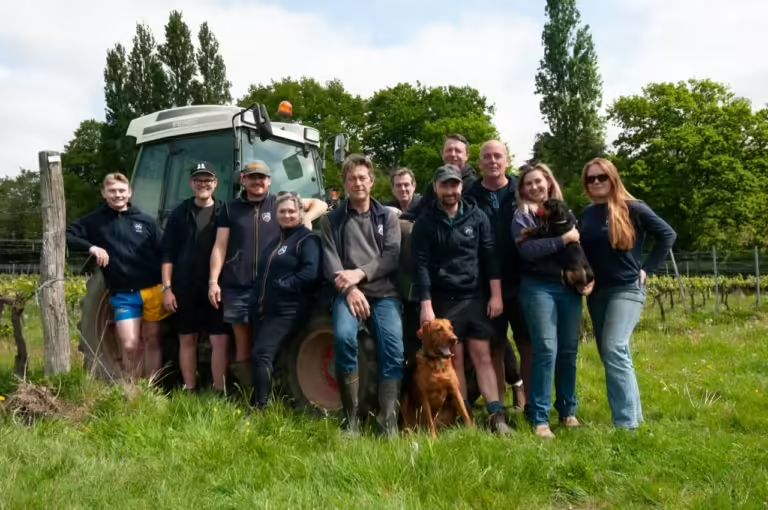Nature’s leading role at Davenport Vineyards
The British wine industry has expanded rapidly over the past decade, largely driven by increasingly favourable growing conditions brought on by climate change. Having grown grapes in England for nearly 35 years, Will Davenport, founder of Davenport Vineyards in Kent, has witnessed this transformation firsthand. When I spoke to him earlier this month, the team was rushing to wrap up the 2025 harvest, as everything had ripened faster. This will be their earliest finish yet.
Davenport Vineyards has long been a leader in organic English winemaking. What began in 1991 as a five-acre plot in the Kentish village of Horsmonden has since grown into five vineyards located across Horsmonden and Rotherfield, East Sussex. With nine grape varieties under cultivation, the focus is on producing high-quality wines that reflect the distinctive soils and microclimates of the land. To “let the fruit speak for itself,” Will takes a low-intervention approach throughout the vineyards and winery.
In 2000, Davenport Vineyards converted to fully organic systems certified by the Soil Association. This was considered a risky move at the time, but it proved incredibly rewarding, with no drop in yield or quality. The vines are managed through low-intervention practices such as cane pruning, careful canopy management, and organic-approved sprays. The same philosophy applies in the cellar. The team lets the wine take its own path wherever possible, relying on wild yeasts and limiting unnecessary additives and extensive processing.
In 2022, Will took over a larger farm from his mother, including 43 hectares of non-organic vineyards, 70 acres of apple orchards, and large swathes of grass and woodlands. Since then, he has left large areas of the farm untouched, seeing a surge in wildlife that, in turn, benefits the vines. “Nature will do it for you, if you let nature have a go at it,” he tells me. The non-organic grapes are currently sold to another winery, but the plan is to transition them to organic management in the coming years.
For Will, organic farming is all about healthy soils. “If you look after your soil”, he says, “it will look after your vines.” He’s quick to point out, however, that organic isn’t a panacea for sustainability. Other areas such as energy use, water consumption, and packaging need to be taken into account too. A large number of solar panels were installed at the new winery built in 2024, and he expects to be energy neutral within the next year. Water use is kept to a minimum, and all tanks are steamed-cleaned without chemicals.
On packaging, Davenport Vineyards has used lightweight bottles for decades, supplied by UK-based A E Chapman & Son. Still wine bottles average 395g, and sparkling bottles 775g. Not only do lightweight bottles have a lower footprint, but they are cheaper too, Will notes. He admits they could probably go even lighter, but hesitates due to the risk of higher breakage rates during courier delivery. When it comes to marketing, Will is careful about avoiding buzzword terms such as “natural” or “sustainable.” As he simply puts it, he just wants to sell good wine.
Read more about Davenport Vineyards here.
Featured members



